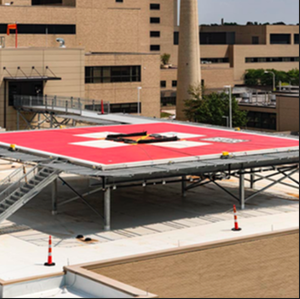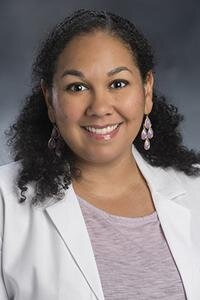Corewell Health is the new name for Beaumont.
Corewell Health is the new name for Beaumont.
Our fellows work a longitudinal clinical shift schedule. This means shifts are spread over PEM months and research months, with the opportunity to vary the number of shifts each month as needed to keep progressing in research and PEM, as well as balance their schedule related to administrative roles and teaching. By the end of fellowship, all fellows must have completed their total shift count.
We also have several longitudinal curriculums weaved into fellowship to enhance learning and broaden fellow's educational experience. These include Patient Safety and Quality Improvement, EMS and Flight, DEI, Admin, and Outreach. These curriculums have specific objectives to provide every fellow with exposure to various facets of our job. Career development with a deeper understanding of each niche occurs. These parts of the program also provide a valuable service to our community and PEM as a whole, are part of a fellow's career and CV development, and aid in getting a competitive job after graduation.
The learning experience is split over three years. The experience
begins with an orientation month with focused lectures, shifts in the
emergency department, and a team building retreat. During your training, you
will spend most of your time in the emergency department, learning what matters
most. Months spent outside of the Emergency Department are heavily focused on
critical care. A total of 7 months of exposure to critical care medicine will
prepare you to take care of whatever comes through your doors.
Fellows experience all aspects of pre-hospital care with in-person EMS ride-alongs, radio call reviews and questions, EMS innovations and simulation conferences in the community, disaster tabletops, and didactic conferences.


Our DEI curriculum is comprised of grand round lectures, journal club, simulation as well as small group discussion. Our fellowship APD, Dr. Lauren Adams, is also the DEI committee chair for the department of emergency medicine. In addition to department specific DEI initiatives, this committee actively participates in many community events and several outreach opportunities are available.
 Interested
in learning more?
Interested
in learning more?Please reach out to Dr. Lauren Adams, MD for any questions or additional information.
EMAIL NOW
 Fellows have a different project each year, sewn in with our curriculum. These are varied visit reviews and ICU case dissections. Departmental initiatives and hospital committee involvement is also a part of this.
Fellows have a different project each year, sewn in with our curriculum. These are varied visit reviews and ICU case dissections. Departmental initiatives and hospital committee involvement is also a part of this.
Examples of recent QI projects include:
Teaching the community with CPR events has been one of the activities our department leads for outreach. Dr. Felice is the faculty leader for our Street Medicine clinic. 
Street Medicine Oakland is a collaboration between the Royal Oak Emergency Department and OUWB School of Medicine that aims to bring medical care to underserved and homeless population in Oakland County. Since 2019, attending emergency physicians from both Royal Oak and Troy Beaumont have been volunteering and supervising medical students on a weekly basis both in the HOPE Shelter in Pontiac or directly on the streets of Pontiac and Royal Oak. By serving in this capacity, we have been able to bridge the healthcare gap and help under-resourced patients navigate the healthcare system and become connected with other community partners to continue care.
Beginning in January of 2021, in conjunction with our healthcare disparities longitudinal curriculum we began to include resident physician volunteers with the HOPE shelter outreach twice monthly. During this volunteer activity resident and fellow physicians are able to see patients and supervise medical students that are staying at the HOPE shelter in a clinic-based format. Emergency medicine residents and fellows can serve patients and the community while supervising medical students and providing care outside the confines of the hospital.
In addition to caring for patients staying at the HOPE shelter, we also provide outreach directly to the homeless population living on the streets of Pontiac twice monthly. By bringing food, toiletries, clothes, medical diagnostic tools, and medications directly to the streets where the homeless are living we can remove several barriers to care for our most vulnerable population. Resident and fellow physicians as well as attending physicians are able to serve alongside medical students, counsel patients and provide care that they would otherwise be unable to access easily.
See below for more information on this unique clinic.